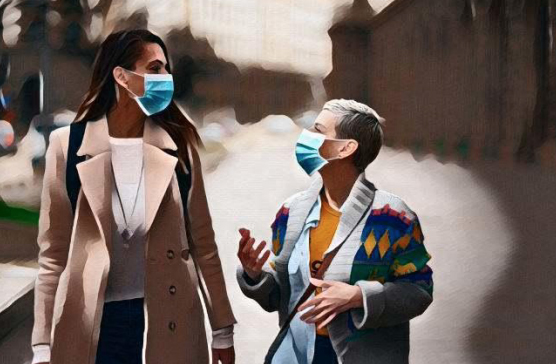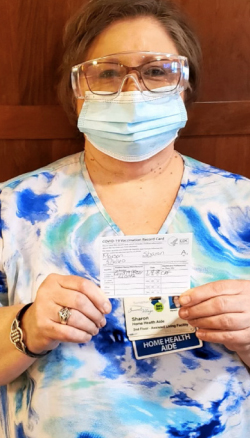Frontline News, Edition 14
April 7, 2021

HOW TO TALK TO FRIENDS, FAMILY, OR CO-WORKERS WHO ARE HESITANT TO GET THE VACCINE

THREE MILLION VACCINATIONS PER DAY
States across the country are now vaccinating over three million people per day and on Saturday, April 3, the country reported over four million doses in a single day. In mid-January, the average was around 800,000 doses daily. This is great news and reflects increased supply and improved access to the vaccines. The goal is to reach “herd” immunity, where enough of the population has been either exposed to the virus or vaccinated.
Experts say between 75 to 85 percent of the population needs to be vaccinated or have been exposed. If the current pace of vaccinations holds, we could reach this goal by late Spring. With improved supplies and access, we need to reach out to friends and family who have yet to schedule a vaccination or may need assistance.
“MEMBER VOICES"

Sharon A. Maxon, HHA,
Samaritan Summit Village,
Watertown, NY
Question of the week
Q: How long does protection from a COVID-19 vaccine last?
A: We don’t know how long protection lasts for those who are vaccinated. What we do know is that COVID-19 has caused very serious illness and death for a lot of people. If you get COVID-19, you also risk giving it to loved ones who may get very sick. Getting a COVID-19 vaccine is a safer choice. Experts are working to learn more about both natural immunity and vaccine-induced immunity. The CDC is keeping the public informed as new evidence becomes available.
COVID-19 INFO AND FAQSClick here for the most up-to-date questions and information, compiled by the 1199 National Benefit Fund, about COVID-19. This is the first place to go with your questions about COVID-19 and the vaccines and how to get them. If you have other questions about COVID-19 or the vaccines, Email us at: VaccineQuestions@1199.org |

